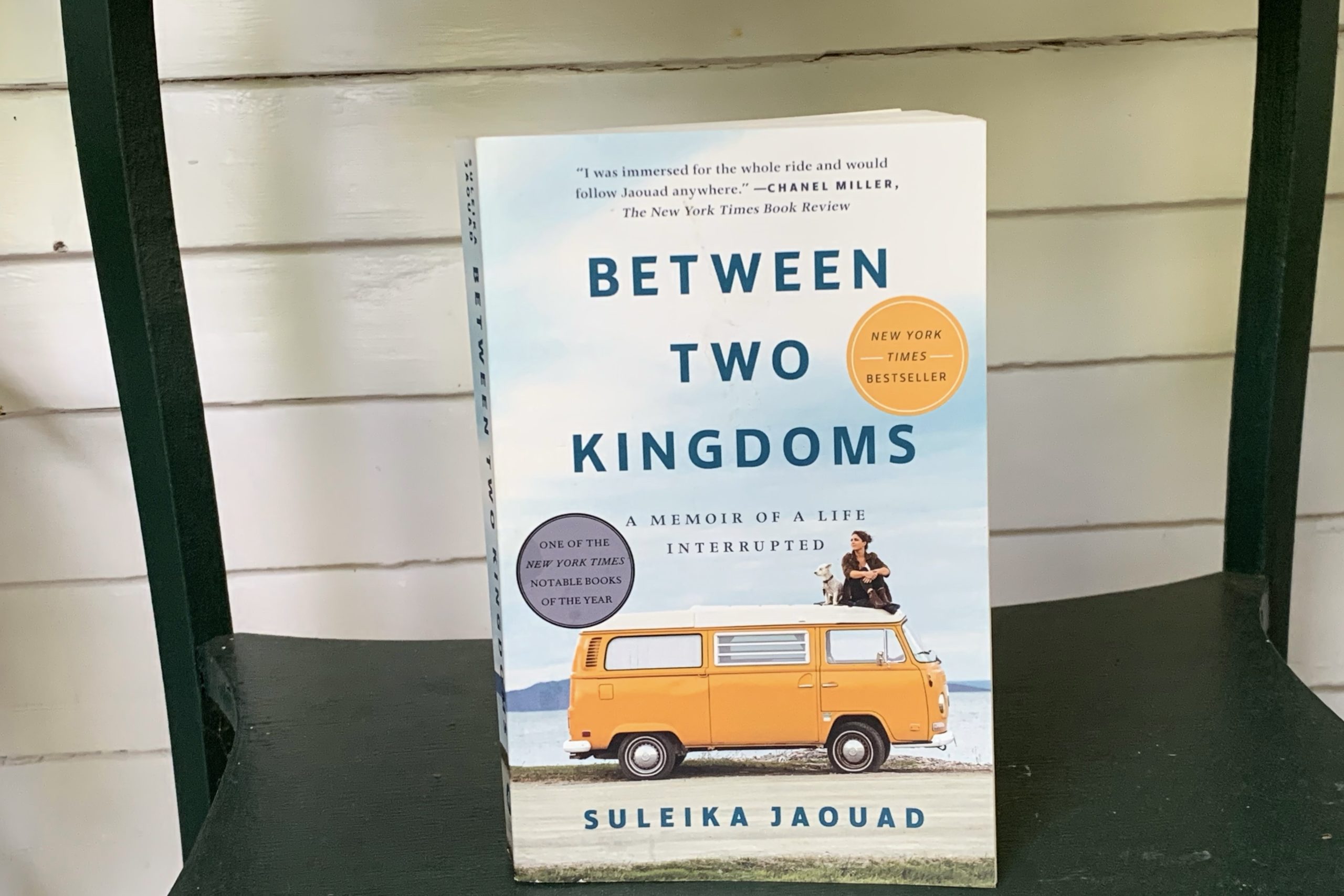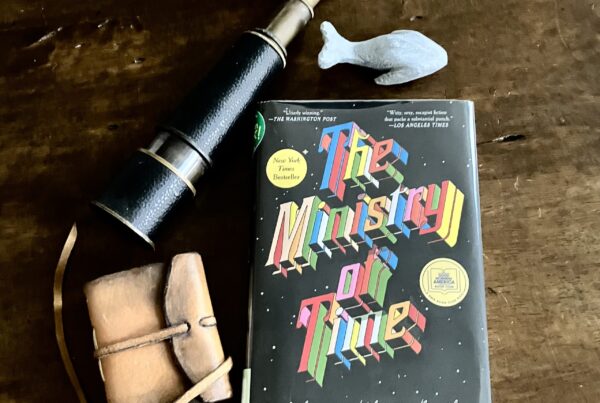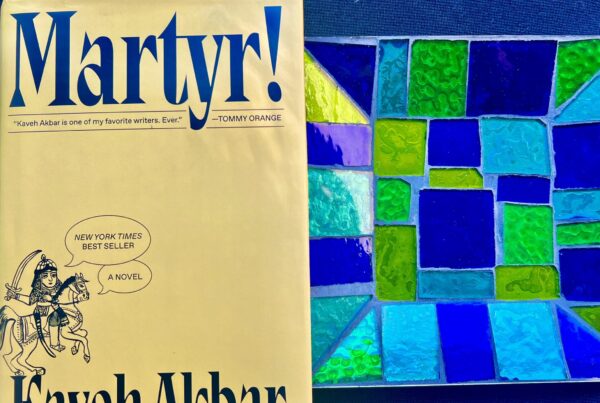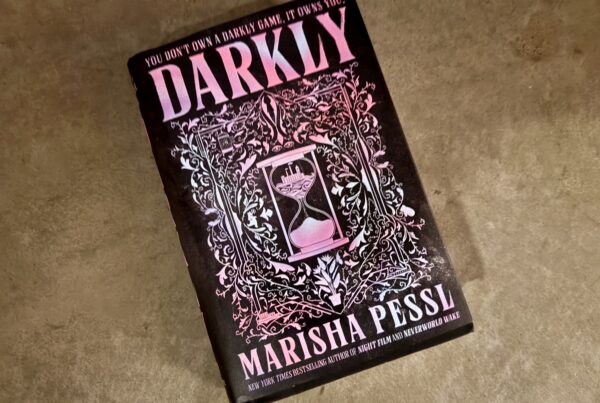A bookclique pick by Ann Klotz
By now, Suleika Jaoud’s story is quite well known. As a young woman battling blood cancer, she launched a column in the New York Times called “Life, Interrupted.” She published her memoir, Between Two Kingdoms, a record of her illness and an amazing cross-country road trip that followed, that is accessible, intimate, and riveting. Last spring, she married musician Jon Batiste. Sadly, her blood cancer, in remission by the end of Between Two Kingdoms, is back. A friend of mine, in the early weeks of the pandemic, had shared with me Suleika’s website, The Isolation Journals and her 100 Day Project in which participants commit to creating one beautiful thing each day. In those early days of leading a school during Covid, I noted the website and joined Suleika’s mailing list but did not connect the dots that she was the creative force behind the Isolation Journals and the 100 Day Project and the author of this memoir until I listened to Between Two Kingdoms this spring.
Suleika references Susan Sontag’s Illness as Metaphor in choosing her title: “Everyone who is born holds dual citizenship in the kingdom of the well and in the kingdom of the sick.” In her expert hands, we realize how permeable the boundary is between the two states of being.
Suleika’s memoir of illness starts with an unexplained itch: as a college student, she struggles to discover an explanation for her persistent fatigue and the uncontrollable need to scratch her legs. Her story incorporates elements of mystery, romance, identity, and coming of age in a narrative of what it is like to experience and chronicle a life-threatening disease. We celebrate her romantic relationship, her move to Paris, her quest for a great job. We mourn the deaths of friends she makes during her long hospital stays, ache for her and her parents and lover as they hope for good outcomes in the face of excruciating treatments. Unwilling to be passive or to consider herself a victim, Suleika claims her voice, explaining: “I decided to imagine my survival as a creative act. If the chemo sores in my mouth made it too painful to talk, I would find new ways to communicate. As long as I was stuck in bed, my imagination would become the vessel that allowed me to travel beyond the confines of my room.” She is resilient and inspirational even as she is flawed and human.
The conversational style is straightforward and direct, intimate. I marveled at how each chapter worked as a complete story, though the aggregate is even more powerful. Suleika is unflinching as she describes the medical indignities and procedures she faces—ports, vomiting, horrific pain—but, as an author, she is in control of her narrative, and we trust her to keep our psychological safety in mind. After she recovers, she, like a hero on a quest, sets out on a journey. That Suleika has little experience driving, let alone driving across the country, does not deter her from borrowing a friend’s car for 100 days to rendez vous with people who had reached out, affected by her column. These encounters—ranging from art teachers to convicts—each a small moment, rendered distinctly, make use of carefully selected details to create three-dimensional characters.
There is real joy and humor among the sorrow: the optimism of youth, Suleika’s own resilience, the way in which friendship and connection fuel her, and the exuberance of Oscar the rescue dog. The second portion of the book reflects the whole experience: grief at her friend’s Max’s death; joy tinged with sorrow when she meets the mother of her dear friend, Melissa. She is alone but has survived, is in a new relationship, and shares her meditations on life and loss as she travels.
After I finished Between Two Kingdoms, I went down a rabbit hole researching Suleika. I was struck to learn that she is ill again, and relieved I had not known about the return of her cancer when I read the book. It is a memoir, an adventure story, a volume of philosophy, a way of walking in the world—encapsulated in the reflections of a wise young person and extraordinary writer. It reminded me, weary of my bout with Covid, that life is precious and fragile, not to be squandered. I look forward to re-reading this book when I need to remember how lucky I am to be alive!




